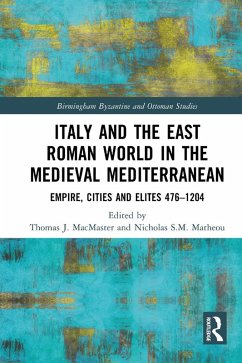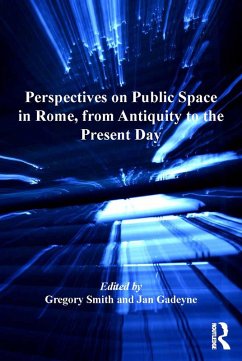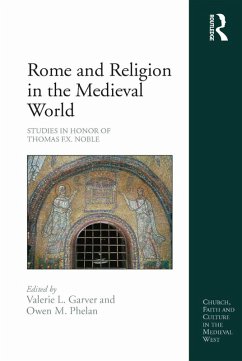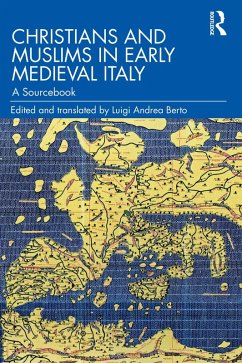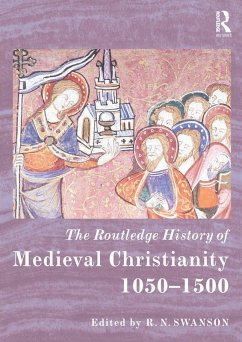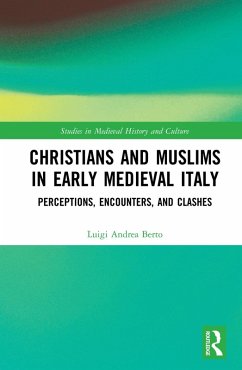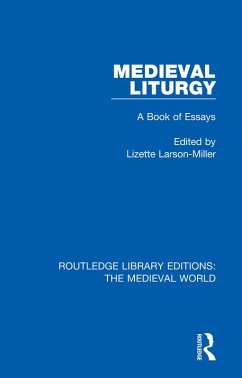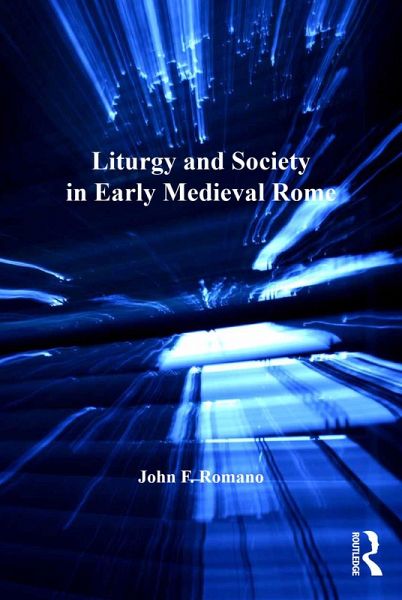
Liturgy and Society in Early Medieval Rome (eBook, ePUB)
Versandkostenfrei!
Sofort per Download lieferbar
42,95 €
inkl. MwSt.
Weitere Ausgaben:

PAYBACK Punkte
21 °P sammeln!
The liturgy, the public worship of the Catholic Church, was a crucial factor in forging the society of early medieval Rome. As the Roman Empire dissolved, a new world emerged as Christian bishops stepped into the power vacuum left by the dismantling of the Empire. Among these potentates, none was more important than the bishop of Rome, the pope. The documents, archaeology, and architecture that issued forth from papal Rome in the seventh and eighth centuries preserve a precious glimpse into novel societal patterns. The underexploited liturgical sources in particular enrich and complicate our h...
The liturgy, the public worship of the Catholic Church, was a crucial factor in forging the society of early medieval Rome. As the Roman Empire dissolved, a new world emerged as Christian bishops stepped into the power vacuum left by the dismantling of the Empire. Among these potentates, none was more important than the bishop of Rome, the pope. The documents, archaeology, and architecture that issued forth from papal Rome in the seventh and eighth centuries preserve a precious glimpse into novel societal patterns. The underexploited liturgical sources in particular enrich and complicate our historical understanding of this period. They show how liturgy was the 'social glue' that held together the Christian society of early medieval Rome - and excluded those who did not belong to it. This study places the liturgy center stage, filling a gap in research on early medieval Rome and demonstrating the utility of investigating how the liturgy functioned in medieval Europe. It includes a detailed analysis of the papal Mass, the central act of liturgy and the most obvious example of the close interaction of liturgy, social relations and power. The first extant Mass liturgy, the First Roman Ordo, is also given a new presentation in Latin here with an English translation and commentary. Other grand liturgical events such as penitential processions are also examined, as well as more mundane acts of worship. Far from a pious business with limited influence, the liturgy established an exchange between humans and the divine that oriented Roman society to God and fostered the dominance of the clergy.
Dieser Download kann aus rechtlichen Gründen nur mit Rechnungsadresse in A, B, BG, CY, CZ, D, DK, EW, E, FIN, F, GR, HR, H, IRL, I, LT, L, LR, M, NL, PL, P, R, S, SLO, SK ausgeliefert werden.





